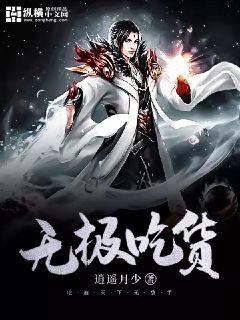
Certainly! Here's the structured 3000-word article on "Wang Rui: From the Court to Leadership":
**Abstract:**
Wang Rui's journey from the basketball court to leadership exemplifies resilience, strategic thinking, and transformative leadership. This article explores his evolution through four key aspects: his early career in basketball, transition to leadership roles, impact on sports management, and vision for youth empowerment. Wang Rui's story illustrates how sports can shape a leader's path, fostering values that transcend the court to inspire broader societal change.
**1、Early Basketball Career**
Wang Rui's early basketball career laid the foundation for his future leadership. Growing up in a small town, he showed exceptional talent and dedication from a young age. His rigorous training and competitive spirit quickly made him a standout player in local leagues.
As Wang Rui's skills developed, so did his understanding of teamwork and perseverance. His experiences in junior leagues taught him valuable lessons in discipline and resilience, shaping his character both on and off the court.
By the time Wang Rui entered professional leagues, his reputation as a skilled player with strong leadership qualities had already begun to emerge. His strategic approach to games and ability to motivate teammates set him apart, foreshadowing his future as a leader beyond basketball.
**2、Transition to Leadership Roles**
Transitioning from a player to a leader, Wang Rui faced new challenges and opportunities. Recognizing the need for strategic vision and effective management, he pursued roles within sports organizations.
Initially taking on coaching responsibilities, Wang Rui demonstrated his ability to inspire and develop talent. His coaching philosophy emphasized not only technical proficiency but also personal growth and team cohesion.
Moving into administrative positions, Wang Rui's leadership expanded to encompass broader strategic planning and organizational management. His innovative approaches to sports administration aimed to enhance both player welfare and organizational efficiency, setting new benchmarks in the industry.
Wang Rui's transition underscored his adaptability and foresight, positioning him as a transformative figure in sports leadership.
**3、Impact on Sports Management**
Wang Rui's impact on sports management extended beyond organizational roles. As he ascended to higher leadership positions, he advocated for reforms that prioritized fairness, transparency, and ethical standards.
Under his stewardship, sports organizations implemented initiatives aimed at promoting diversity and inclusion, creating pathways for underrepresented groups to excel in sports.
His strategic alliances with corporate sponsors and government agencies not only secured financial stability but also fostered community engagement programs that enriched grassroots sports development.
Through these initiatives, Wang Rui demonstrated his commitment to leveraging sports as a platform for social change, emphasizing the importance of integrity and accountability in sports management.
**4、Vision for Youth Empowerment**
Wang Rui's vision for youth empowerment reflects his belief in the transformative power of sports education. Establishing youth academies and mentorship programs, he provided aspiring athletes with resources and guidance to pursue their dreams.
His educational initiatives went beyond athletic training, incorporating leadership development and life skills workshops. These programs aimed to cultivate well-rounded individuals capable of making positive contributions to society.
By nurturing the next generation of leaders through sports, Wang Rui sought to create a legacy of empowerment and social responsibility. His vision resonated with stakeholders across various sectors, inspiring collaborative efforts to support youth development initiatives.
**Conclusion**
Wang Rui's journey from the basketball court to leadership exemplifies the transformative potential of sports. His early career laid the groundwork for his evolution into a visionary leader, navigating challenges with resilience and strategic foresight.
Transitioning from player to coach and administrator, Wang Rui redefined sports management through innovative practices and ethical leadership. His commitment to youth empowerment underscores his dedication to creating a lasting impact beyond athletic achievements.
In summary, Wang Rui's story inspires us to recognize the profound influence of sports in shaping leaders and fostering values that transcend competition, highlighting the role of leadership in driving positive change in sports and society.
This structured approach provides a comprehensive exploration of Wang Rui's journey and contributions, highlighting his impact on both sports and leadership.
文章摘要:本文探讨了伤病球员薪资在赛场上的隐形成本。通过分析伤病对球员、球队和联赛的影响,揭示了这些成本可能带来的深远影响。
1、伤病对球员个人的影响
伤病不仅影响球员的职业生涯和收入,还可能对其心理和身体健康造成长期影响。首先,伤病会导致球员长期缺席比赛和训练,影响其表现和职业生涯发展。其次,伤病带来的心理压力和康复过程对球员的心理健康构成挑战,需要长期的支持和康复。
此外,伤病还可能影响球员在球队中的角色和地位,长期缺席使得球队可能会调整阵容和战术布置,对球员的职业发展产生负面影响。
最后,伤病可能导致球员提前退役或影响其在球场上的表现水平,从而影响其未来的收入和职业前景。
2、伤病对球队的竞争力影响
伤病球员对球队的竞争力有着直接和间接的影响。首先,关键球员因伤病缺阵可能导致球队战术上的重大调整,从而影响比赛结果和成绩。
其次,球队需要为伤病球员提供额外的康复和治疗资源,增加了运营成本。这些资源原本可以用于其他方面,例如引进新球员或提升球队设施。
最后,长期伤病可能影响球队的整体士气和团队凝聚力,球员的不确定性和阵容变化可能导致团队稳定性下降。
3、伤病对联赛和观众的影响
伤病球员的存在对联赛和观众也有一定影响。首先,伤病导致的比赛质量下降可能影响观众的观赏体验,减少球票销售和电视转播收入。
其次,联赛可能需要实施额外的规则或政策来应对伤病球员的问题,例如伤病替补规定或赔偿机制,增加了管理和运营成本。
最后,长期存在伤病球员可能导致联赛整体形象受损,影响其在全球范围内的声誉和品牌价值。
4、减少伤病球员带来的好处与解决方案
为减少伤病球员的隐形成本,球队和联盟可以采取一系列措施。首先,加强预防措施和康复治疗,提升球员的身体素质和健康管理水平。
其次,优化赛程安排和比赛规则,减少球员的体能消耗和伤病风险。
最后,建立更完善的保险和赔偿制度,为伤病球员提供更全面的支持和保障。
总结:
伤病球员的薪资不仅是直接的经济支出,还涉及到赛场上的诸多隐形成本。这些成本不仅影响到球员的职业生涯和收入,还可能对球队和整个联赛的竞争力、观众体验和形象产生深远影响。因此,减少伤病球员的发生和影响,不仅是管理者和联盟的责任,也是提升整个体育产业健康发展的重要举措。
在未来,通过综合利用现代科技和管理手段,希望能够最大程度地降低这些隐形成本,促进体育产业的可持续发展。
### 文章摘要
陈志远引援风云,探索了足球交易背后的权力游戏。本文分析了权力在球员转会中的角色,包括俱乐部管理层、经纪人、球员及其家族等各方的博弈和利益关系。通过深入研究陈志远的引援策略和其背后的权谋,揭示了足球背后的复杂和纷争,展示了权力在现代足球中的重要性和影响力。
1、俱乐部与管理层
俱乐部在引援过程中扮演着关键角色。管理层如何决策,涉及到球队战术和财政稳健之间的平衡。管理层的权力如何影响到具体的交易细节,尤其是在高额转会费和工资谈判中的应对策略。
管理层对球员选择的倾向及其背后的战略考量,决定了球队未来的发展走向。他们如何在不同情境下协调利益关系,是现代职业足球运作中的一大挑战。
管理层如何通过引援策略来增强球队的竞争力,以及在转会窗口开启时的决策制定过程,直接关系到球队整体战略的成功与否。
2、经纪人与代理人
经纪人在球员交易中的作用不可忽视。他们通过其丰富的资源网络和谈判技巧,为球员争取最佳的合同条件和职业发展机会。
经纪人如何在俱乐部和球员之间扮演桥梁角色,协调各方的利益,并确保自身在交易中获得最大化的经济收益。
经纪人与俱乐部管理层之间的关系如何影响到球员的市场定价和转会谈判,是现代足球市场中的重要议题。
3、球员及其家族
球员作为足球交易的主体,其个人选择和职业发展路径是交易过程中的核心。球员如何在经纪人和俱乐部的影响下做出决策,以及他们背后的家庭支持系统的作用。
球员在转会谈判中如何平衡经济诱惑和职业发展的长远利益,以及如何管理媒体和球迷的期待,是现代职业球员必须面对的挑战。
球员和家庭在转会决策中所承受的压力和考量,决定了他们在职业生涯中的成功与否。
4、媒体与公众舆论
媒体在现代足球交易中扮演着重要角色。他们如何通过报道和舆论引导,影响到俱乐部、经纪人和球员的决策过程和转会结果。
公众舆论如何在转会窗口期间对球员的表现和俱乐部的策略产生影响,以及媒体如何通过报道塑造和影响转会市场的氛围。
媒体对转会交易公开透明度的要求,以及他们如何揭示背后的权力游戏和利益冲突,对足球行业的发展具有深远的影响。
总结:
陈志远引援风云,深刻揭示了现代足球交易背后的权力游戏。俱乐部、经纪人、球员及其家族以及媒体,各方在交易过程中的角色与争斗,展示了权力如何在足球界中影响到每一个决策和结果。这种复杂的权力平衡和利益关系,不仅影响着球员的职业生涯和俱乐部的竞争力,也深刻影响着足球行业的运作模式和未来发展方向。